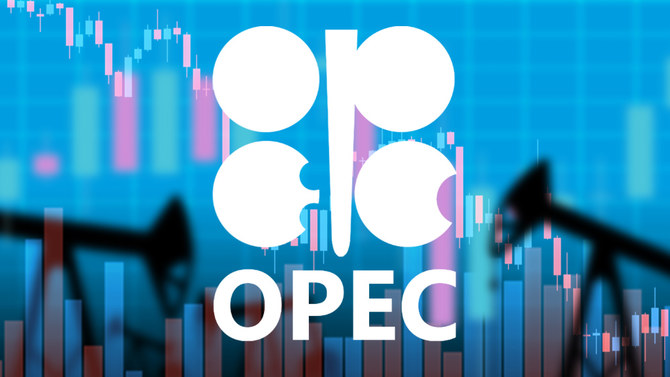
- ARAB NEWS
- 01 Jul 2025

While the arch-environmentalists call for the abolition of all fossil fuels at the 2021 UN Climate Change Conference, or COP26, in Glasgow, over in Vienna the sharp end of the oil industry is getting down to business.
The regular monthly meeting of the OPEC+ partnership — the alliance of producers led by Saudi Arabia and Russia — is due on Nov. 4, and, while the broad outline of the strategy is clear, one issue is likely to dominate this and future meetings: The calls by some non-OPEC+ countries for the organization to increase output.
US President Joe Biden has led these calls. He sees the price of a barrel of crude rising to around $85 and — for a variety of reasons domestic, geopolitical and environmental — would like to see more crude being pumped to blunt that price spike.
Forget for a moment the fact that the solution lies in his own hands if he were to lift regulatory restrictions and investment pressure on his own industry so that shale producers could get the rigs loaded up again.
That would go a good way to increasing the global total. In October, US oil output stood at 11 million barrels per day, some 2 million down from its pre-pandemic levels. OPEC+ on the other hand was pumping 27.8 million, just 500,000 short of its production before the pandemic struck.
But even apart from that, there are very good reasons why OPEC+ should not deviate from the strategy painstakingly agreed upon in the summer to increase output by 400,000 barrels per month until the end of 2022.
For one thing, the global energy market is in such a state of volatility at the moment, with gas and coal prices soaring, that OPEC+ policy can be regarded as a benchmark of stability. If things get even more volatile in the event of a sudden cold snap in the US and Europe, oil stability and accessibility will be much appreciated.
There are very good reasons why OPEC+ should not deviate from the strategy painstakingly agreed upon in the summer
Frank Kane
True, there has been some evidence of switching from gas and coal to oil as prices rose and crude became comparatively competitive, but it is not clear how much this has added to global demand. Some experts put it at just 500,000, which is minimal in the broader scheme of things.
OPEC+ must also have an eye firmly on the future. Investment in the oil industry was so badly impacted by the price collapses of 2020 that it has still not recovered, and a period of sustained higher prices is required to encourage investment for the future (regardless of what the Glasgow activists think.)
On top of this, many experts are predicting a deficit between supply and demand next year as the OPEC+ policy of gradual monthly increases is rolled out. If Biden waits just a few months, he is likely to have all the oil he wants in 2022. To add to that with an extra supply increase now would lead to further imbalance in the global market, which took so long to get back in order after 2020.
In fact, some OPEC+ members have already significantly increased output since the summer. Gulf Cooperation Council producers have been pumping more, and the biggest producer — Saudi Arabia — is back around pre-pandemic levels.
Other OPEC+ members are constrained to meet even the levels agreed upon by the organization last summer. Several African countries are struggling to meet their new, increased targets. Recovery from the hit of 2020 has taken those countries longer than anticipated.
So, all these are good, logical reasons why OPEC+ should stick to its plan at the upcoming Vienna meeting. Despite the febrile atmosphere in the midst of the COP26 event, with geopolitical pressures rising, logic should still be the deciding factor.
• Frank Kane is an award-winning business journalist based in Dubai.
Twitter: @frankkanedubai